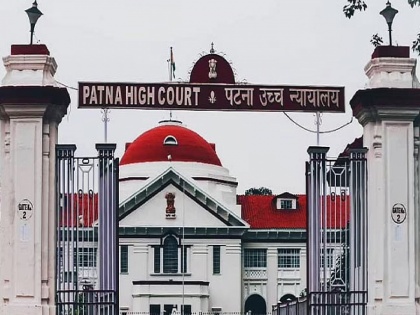Calling Wife ‘Bhoot’ or ‘Pishach’ Not Cruelty, Says Patna HC
By Lokmat English Desk | Published: March 29, 2024 05:35 PM2024-03-29T17:35:13+5:302024-03-29T17:35:58+5:30
In a recent ruling, the Patna High Court has stated that a husband calling his wife 'Bhoot' (ghost) or ...

Calling Wife ‘Bhoot’ or ‘Pishach’ Not Cruelty, Says Patna HC
In a recent ruling, the Patna High Court has stated that a husband calling his wife 'Bhoot' (ghost) or 'Pisach' (Vampire)does not inherently amount to cruelty. Justice Bibek Chaudhuri, presiding over a bench, said that within matrimonial dynamics, particularly in cases of failed marriages, instances of mutual verbal abuse between spouses are not uncommon. However, not all such exchanges can be categorized as acts of "cruelty."
These observations were made by the court while overturning a husband's conviction under Section 498A of the Indian Penal Code and Section 4 of the Dowry Prohibition Act, 1961.
According to a report of Live Law, The Court allowed the revision plea moved by the husband challenging the order of the Additional Sessions Judge, Nalanda at Biharsharif upholding the order of his conviction passed by Chief Judicial Magistrate, Nalanda.
In brief, Opposite Party No. 2, the father of the wife, lodged a complaint in 1994 with the Chief Judicial Magistrate of Nawada against her husband and his family members. The complaint alleged that his daughter had been subjected to physical and mental abuse due to dowry demands after her marriage to the petitioner No. 2 (husband). The complaint was then forwarded to the police under Section 156(3) of the Criminal Procedure Code (CrPC), leading to the filing of a case under Sections 498A, 323, 120B, 348, and 386 of the Indian Penal Code, along with Sections 3/4 of the Dowry Prohibition Act, 1961.
On completion of the investigation, the Police submitted a charge sheet against the Petitioners and 11 other persons named in the FIR. Both the Trial Court as well as the Court of Appeal, convicted and sentenced the Petitioners to rigorous imprisonment for one year for offence under Section 498A IPC and rigorous imprisonment for six months for the offence punishable under S. 4 of the Dowry Prohibition Act, 1961, Live Law reported.